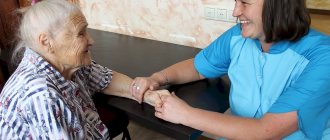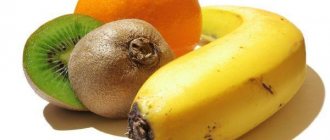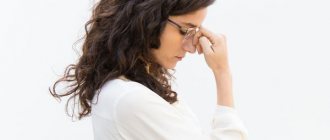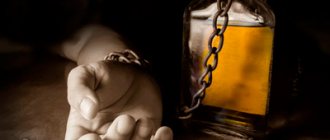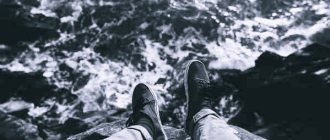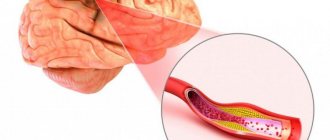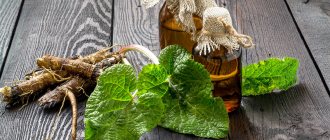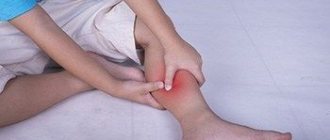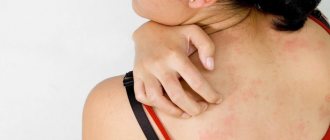If you need emergency help, contact Alco-Center
Call the hotline +7 (495) 773-03-43 and our doctors will provide emergency care for intoxication of the body with breakdown products of alcohol and narcotic substances.
from 3,200 rub.
Withdrawal from binge drinking
Emergency body detoxification procedure
from 4,000 rub.
Coding
Urgent blocking of cravings for alcoholic beverages
from 68,000 rub.
Rehabilitation
Comprehensive rehabilitation giving 100% results
Glycine
Glycine is a metabolic drug that is a metabolic regulator. Once in the body, it normalizes the activity of the central nervous system, which helps to avoid emotional and psychomotor agitation.
The drug has a number of beneficial effects on the body:
- Has an antioxidant effect;
- Removes toxic substances;
- Increases human adaptation in society;
- Eliminates aggression and emotional stress;
- Reduces the toxic effect of alcohol;
- Makes it easier to fall asleep.
The cost of Glycine is from 40 rubles.
Before starting treatment, consult a specialist. Do not combine sleeping pills and sedatives - such actions often lead to severe side effects, some of which are fatal.
The effect of alcohol on human sleep
To dispel all doubts, let’s say right away - don’t drink before bed if you want to get a good night’s sleep. Research by scientists has long proven that the green snake potion is not an assistant in improving the quality of sleep. When taking alcohol-containing products, the process of falling asleep actually speeds up, but the quality suffers greatly - resources are not restored. Hence the morning headache, weakness throughout the body, and a feeling of exhaustion. All this happens due to the deterioration of the quality of the REM sleep phase - this is the period when the body is actively recovering.
The next negative point is related to the fact that alcoholic drinks have a lot of other effects. One of them is a diuretic effect, causing you to constantly wake up at night to go to the toilet. Is there any benefit to such intermittent sleep? Of course not!
By drinking alcoholic beverages to fall asleep faster and more soundly, you risk falling into a vicious circle - you drank alcoholic beverages and did not get enough sleep. Then in the evening you collapse from fatigue. Then you drank alcohol again, fell asleep, didn’t get enough sleep again, and so on in the same spirit.
Now let’s specifically outline how drinking alcohol affects you when you drink it systematically at night:
- The appearance of irritability;
- Constant feeling of anxiety;
- Decreased concentration;
- The appearance of hallucinations;
- Overeating and weight gain;
- Deterioration of the immune system.
Negative consequences of binge drinking
Drinking large doses of alcohol provokes severe intoxication, has a negative effect on the central nervous system and brain, disrupts kidney function, destroys the liver, and provokes interruptions in the functioning of the cardiovascular and respiratory systems.
A dangerous consequence of prolonged heavy drinking is sleep apnea. Stopping breathing is caused by a narrowing of the larynx. The muscle tone of the walls decreases, the lumen narrows, and the sleeper cannot take a full breath. Breathing stops for 10-20 seconds, then the person inhales sharply and deeply, which is accompanied by characteristic loud sounds - snoring. Periodic or frequent apneas provoke a lack of oxygen, and hypoxia negatively affects the brain, disrupting its functioning, slowing down important processes and reactions.
The situation is aggravated by chronic diseases of the respiratory and cardiovascular systems. The heart needs to eliminate the effects of hypoxia by pumping more blood and delivering it to the brain. In case of illness, the myocardium may not be able to cope with the load, which can lead to a heart attack. With pathologies of the lungs, serious breathing problems are observed, and there is a threat of complete stoppage, even death.
A binge alcoholic, after a week or more of drinking, tries to have a hangover and begins to drink too much. Alcohol addiction develops, a vicious circle arises: the body does not have time to recover and cleanse itself of ethanol breakdown products and toxins, again receiving a portion of alcohol. If a drunkard manages to stop, even if his general condition improves, he suffers from insomnia. The duration of the period of restoration of normal sleep is 5-10 days, depending on the duration of the binge and the doses of alcohol taken.
If a person falls asleep, rest cannot be called healthy and normal. The processes of transition from one phase to another are disrupted, and the correct cyclicity of stages becomes impossible. Deep sleep is reduced, the person sleeps intermittently. And since in the slow phase the functions of all organs are restored and the brain is rebooted, the body cannot work uninterruptedly. The synthesis of cerebrospinal fluid decreases, and the amount of melatonin, which is responsible for stabilizing circadian rhythms and the balance of wakefulness and rest, decreases. An alcoholic may confuse day and night, feel tired and “broken” during the day and not sleep at night.
Prolonged insomnia and lack of night rest cause negative consequences:
- Auditory and visual hallucinations, “delirium tremens.” In this state, a person can commit rash, dangerous acts, cause harm to himself and others, behave inappropriately and react to current events.
- Unreasonable fears and phobias, panic attacks. Nerves weakened due to prolonged lack of sleep cause disruptions in the functioning of the central nervous system.
- Obsessive ideas, thoughts of suicide. If the alcoholic's condition does not improve and he does not receive help, he may commit suicide.
- Exacerbation of existing chronic diseases. Large doses of alcohol wear out the body, which directs all its forces to recovery instead of using energy to maintain vital functions and normalize the functioning of internal organs.
- Deterioration of mood, apathy, depression.
- Bad dreams, nightmares. You can dream about them all the time and literally overwhelm you.
- Risks of choking on vomit. Vomiting can occur during sleep, and if a person lies on their back, there is a possibility of stomach contents being inhaled.
- Stiffness in legs and arms. In a normal state, a person turns over at night and changes his sleeping position. A drunk or hungover person may sleep in one position, which can lead to compression of blood vessels and poor circulation. With a prolonged absence of blood supply to the limb, tissue death begins.
- Fire hazard when smoking in bed.
What happens after a couple of glasses at night?
A person suffering from insomnia wonders: what happens to my body after drinking several glasses of wine before bed? Let's figure it out together.
Once in the body, the strong drink begins its sedative effect on the brain, helping to fall asleep. A salvation for people suffering from insomnia? No matter how it is! Yes, this magical elixir will indeed help you fall asleep faster and sleep more soundly, but this is just the tip of the iceberg. The REM sleep phase is of great importance for people. During it, a person dreams and his body restores its resources. Alcohol shortens this phase, reducing its beneficial effect on internal organs and mental state. Dreams turn into disturbing nightmares, and the recovery process is reduced to a minimum. A study by scientists showed that the more you drink at night, the shorter the FBS. Have you ever felt tired after waking up? Know that the green serpent is to blame.
Now answer the question for yourself - what will happen after a couple of glasses at night? Irritability, morning fatigue, anxiety, decreased concentration - this is what you will gain along with the glasses you drink.
Types and signs of insomnia
Insomnia with a hangover is a natural reaction of the body to a critical situation (alcohol poisoning). From an evolutionary point of view, this is explained by the manifestation of activity: in a life-threatening situation, a person must run away or hide, which is in no way compatible with sleep.
Doctors divide insomnia into several types:
- Difficulty falling asleep. A person lies in bed for a long time, but cannot fall asleep. Asomnia is aggravated by panic, headache, nervous tension and aching joints;
- Increased sleep sensitivity. The person falls asleep, but the sleep does not last long. An alcoholic wakes up from the slightest irritant. Insomnia is accompanied by nightmares and visions;
- Complete insomnia. This type of insomnia occurs with long-term alcoholism. The person is resistant to sleep or falls into a light sleep but is awakened by hallucinations;
- Poor sleep hygiene. Insomnia is complemented by improper sleep schedules, overeating and smoking;
- Inorganic insomnia. Its cause is mental illness that appears against the background of alcoholism.
One type of insomnia develops against the background of withdrawal syndrome (withdrawal syndrome). Popularly this is called “breaking”. Withdrawal syndrome manifests itself 6-48 hours after the last drink.
Withdrawal from alcohol is manifested by increased agitation, trembling hands, convulsive seizures, and hallucinations. The person suffers from nausea, headache and asomnia.
Don't mix alcohol with sleeping pills
Sometimes insomnia is so exhausting that he is ready to take measures that he would not take in his right mind. He adds sleeping pills to his intoxicating intake. Do not do that! The effects of such a cocktail are dangerous for humans. This hellish mixture is used by people who want to commit suicide. And for good reason. Sleeping pills and alcoholic products enhance each other’s effects and taking them together leads to the following consequences:
- Stomach bleeding;
- Acute headache after waking up;
- Nausea and vomiting;
- General signs of poisoning;
- Coma;
- Fatal outcome.
The scary thing about taking intoxicating drinks together with tranquilizers is that, after falling asleep, you will no longer be able to take measures to save yourself. You will sleep “without hind legs” and will not be able to react to any disturbances in the body. Give up this method of getting rid of insomnia, do not cause irreparable harm to the body.
How to get rid of insomnia after binge drinking using medications
A side effect of a hangover is a severe headache. In this case, you can take a tablet of Aspirin, Zorex or Mexidol. For high blood pressure, take Citramon. But it is more toxic. Just like Paracetamol, it can have a negative effect on the liver. As a sedative, it is better to take Glycine, Afobazol, Valerian, Biotredin, Motherwort, Mexidol.
Valium Roche, Diphenhydramine, Elenium should be used with extreme caution. Medications are prescribed as prescribed by a narcologist. It is worth remembering that you cannot use sleeping pills and sedatives at the same time. You can get the opposite effect.
How to deal with insomnia
If it is not recommended to take alcohol and it is strictly forbidden to mix it with sleeping pills, how can I fall asleep? This question arises for all people who have long forgotten what it means to sleep soundly all night. There are many techniques and solutions that will help you without resorting to this destructive drink. Here are some tips to help you regain your night's rest:
- Avoid consuming energizing foods in the afternoon. These include coffee, strong tea, chocolate, cocoa, and synthetic energy drinks. Try to consume such foods before lunch.
- Smoking interferes with sleep. Quit this unhealthy habit. Or, at least, protect yourself from cigarettes before bed.
- A clear daily routine has a positive effect on sleep. Set a time for yourself when you go to bed and stick to it. The result will be sleep within a few minutes.
- Who doesn't dream of a hot bath after a long day of work? Hot water helps you relax. Take a bath an hour and a half before leaving for the kingdom of Morpheus, and you will go to bed half asleep. Aromatic herbs and essential oils with soothing properties will enhance this effect.
Motherwort tincture is your assistant for sleep disorders. Take it before bed, it helps you fall asleep. Remember, the tincture is contraindicated for pregnant women and people suffering from bradycardia.
So, you now know that alcohol-containing products will not help you restore sleep. They do more harm than good. Remember this the next time you hear the advice “have a glass in the evening, you’ll sleep like a baby.” A couple of glasses of beer, a glass of wine, a shot of vodka - this is what will aggravate the problem. Avoid these treatments. For severe forms of the disorder, contact a certified psychotherapist. The help of a professional will have a beneficial effect for ten years, the nights will begin to bring joy. Don't take risks, don't self-medicate. Moreover, do not resort to intoxicating drinks. Taking care of the health and health of loved ones is everyone’s first priority.
Author of the article: Yakovlev Evgeniy Anatolyevich
Narcologist, Candidate of Medical Sciences.
Treatment of insomnia in alcoholism
In case of sleep disturbances due to binge drinking, it is necessary to carry out a comprehensive detoxification . The medical consultation is provided by qualified and experienced narcologists who will provide the patient with the necessary assistance. We work around the clock, so you can call a doctor at any time, including weekends and holidays.
If you consult a doctor before signs of delirium manifest, treatment is carried out either at home or on an outpatient basis. However, alcoholic psychosis is a clear indication for hospitalization.
The main goal of detox therapy is to accelerate metabolism and cleanse the body of ethyl alcohol and its metabolites as quickly (and safely) as possible . For this use:
- saline solutions that help restore electrolyte and water balance;
- B vitamins with neuroprotective effects;
- angioprotectors and antioxidants;
- drugs to improve cerebral, coronary and peripheral blood flow;
- hepatoprotectors.
To eliminate insomnia after binge drinking and prevent acute mental disorders, sedatives are used. When treating at home, preference is given to “milder” and safer benzodiazepines; when treating in a hospital, antipsychotics are used, which have a pronounced sedative, anti-anxiety and antihallucinatory effect.
